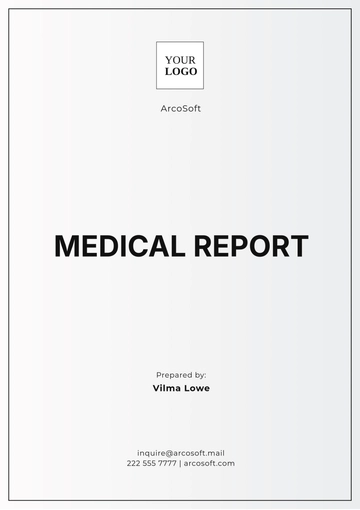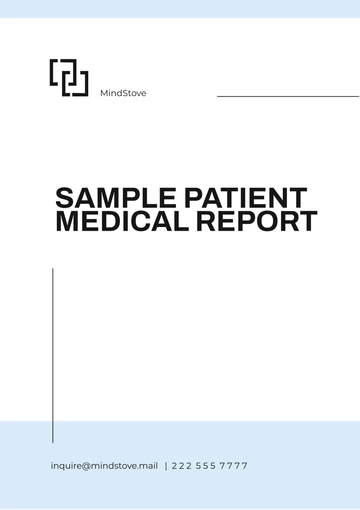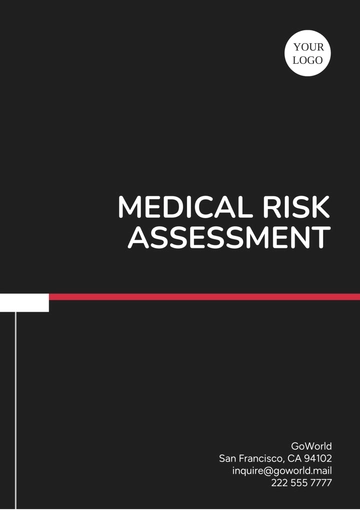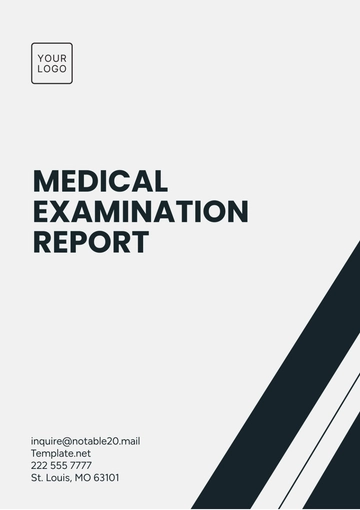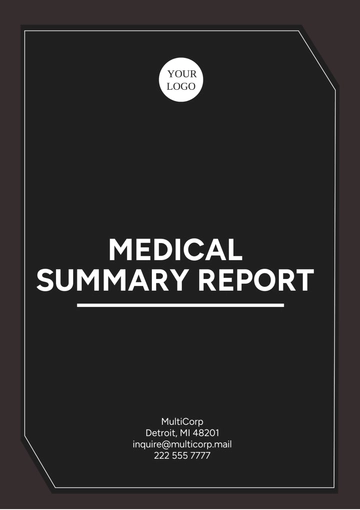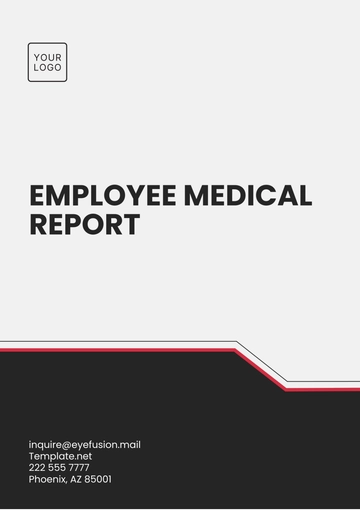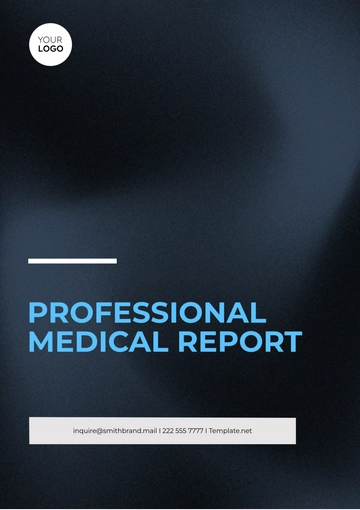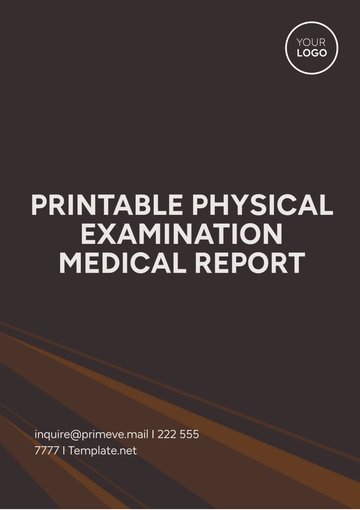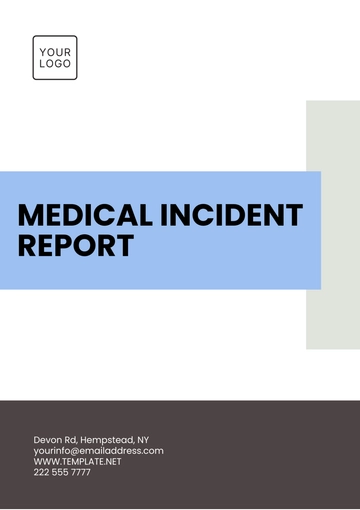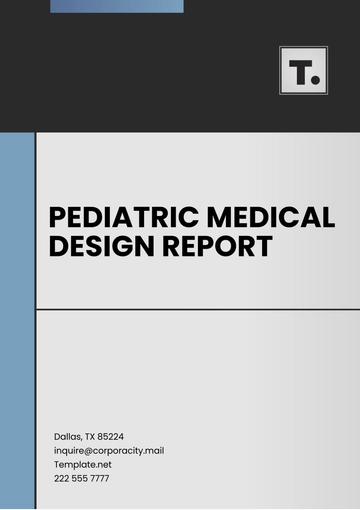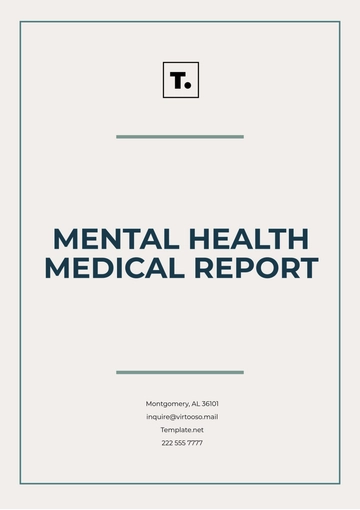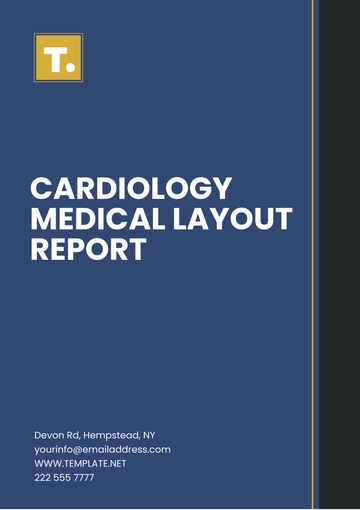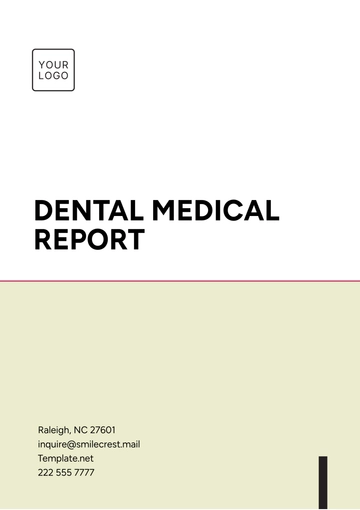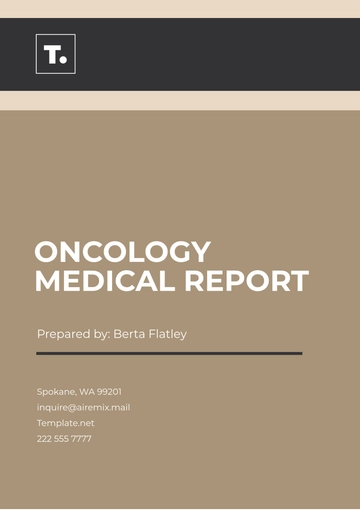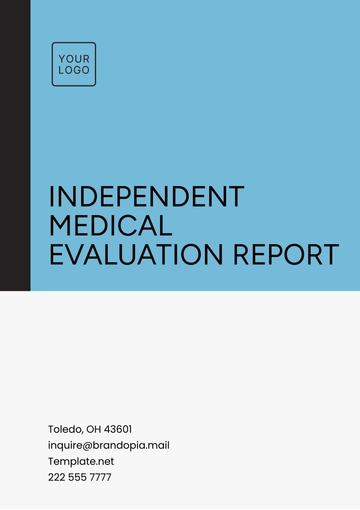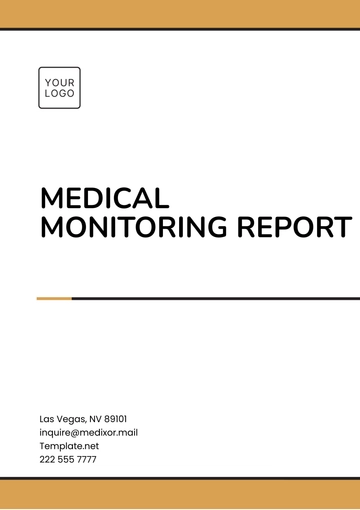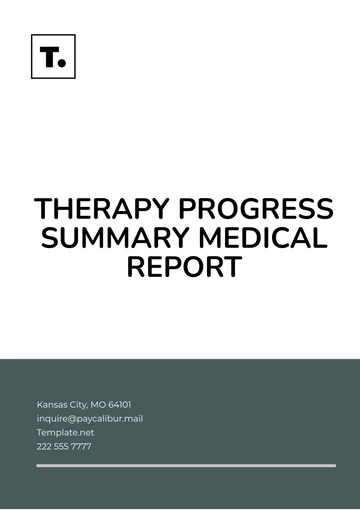Free Mental Health Medical Report
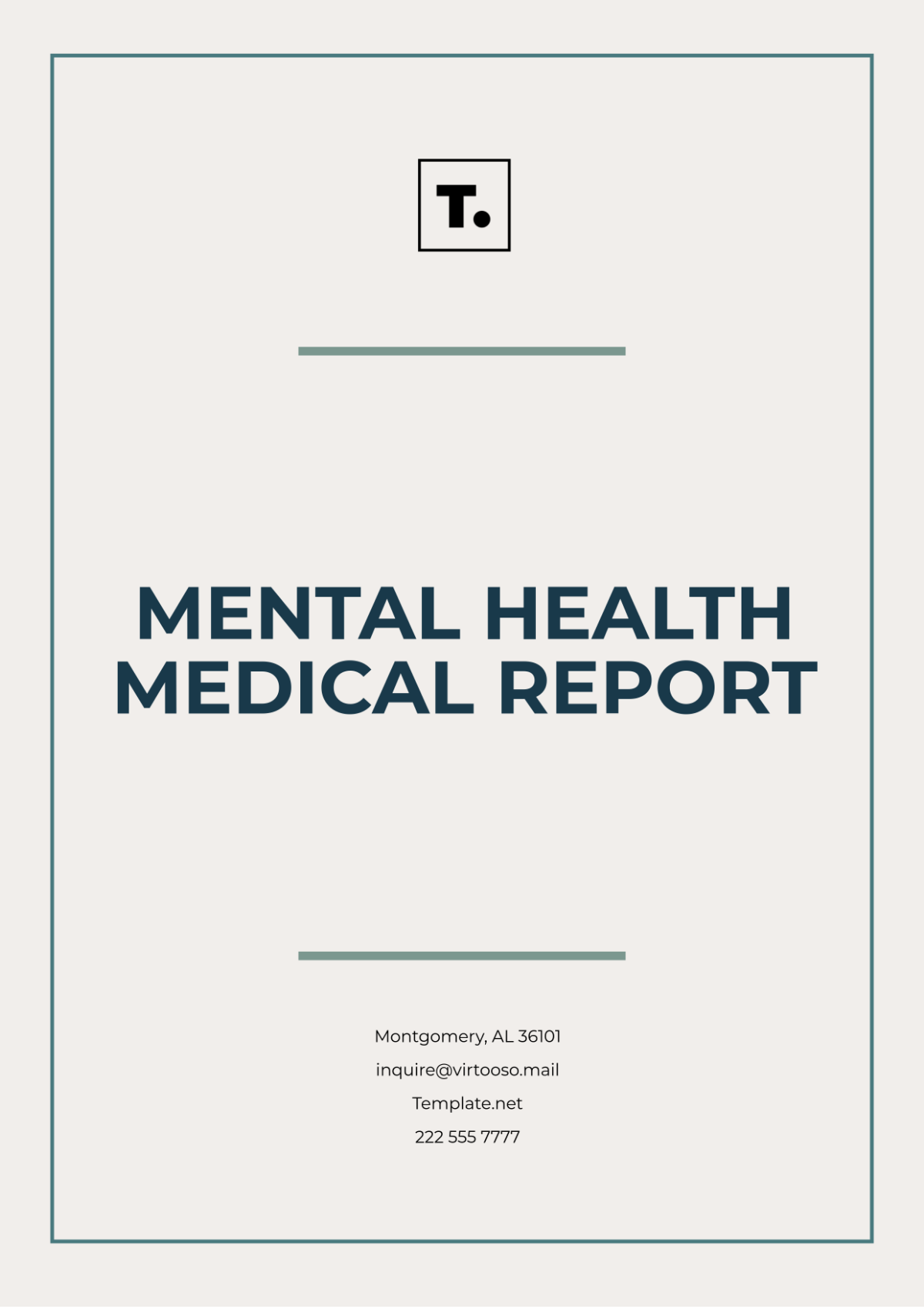
Patient Information
Patient Name: | John Smith |
Patient ID: | 123456789 |
Date of Birth: | January 1, 2050 |
Gender: | Male |
Contact Information: | 123-456-7890 |
Referring Physician
Name: [Your Name]
Contact Number: (555) 987-6543
Address: 123 Medical Plaza, Springfield, IL 62701
Presenting Problem
Reason for Visit:
John presented with persistent feelings of sadness, anxiety, and difficulty concentrating. She reports these symptoms have interfered with her daily life and work.
History of Present Illness
Duration of Symptoms: 6 months
Description of Symptoms:
Jane describes her mood as "overwhelmingly heavy" and has experienced episodes of crying, fatigue, and feelings of hopelessness. She has difficulty sleeping, often waking up at night, and reports a loss of interest in activities she once enjoyed.Previous Treatments:
Jane has not previously sought mental health treatment but has tried over-the-counter herbal supplements without noticeable effects.
Medical History
Physical Health Issues:
John has a history of asthma, well-managed with an inhaler.Mental Health History:
No prior mental health diagnoses or treatments.Substance Use:
Occasional alcohol use, approximately 1-2 drinks per week. No history of substance abuse.
Mental Status Examination
Appearance:
John appeared well-groomed but slightly disheveled, with noticeable fatigue.Behavior:
Cooperative but anxious, fidgeting with her hands during the examination.Mood and Affect:
Mood reported as depressed; affect is congruent but limited in range.Thought Process:
Thought processes were logical but slowed; no evidence of delusions or hallucinations.Cognition:
Fully oriented to person, place, and time; attention and concentration were somewhat impaired.Insight and Judgment:
Insight into her condition is limited; judgment appears intact.
Assessment
Diagnosis:
Major Depressive Disorder, Moderate (DSM-5 Code: 296.32)Severity Level:
ModerateRisk Assessment:
No current suicidal or homicidal ideation; low risk for self-harm with adequate support.
Treatment Plan
Recommended Interventions:
Initiate a trial of an SSRI (Selective Serotonin Reuptake Inhibitor) such as Sertraline (Zoloft) at a starting dose of 50 mg daily.
Schedule weekly psychotherapy sessions focused on cognitive-behavioral therapy (CBT) to address depressive symptoms.
Encourage regular physical activity and mindfulness practices.
Follow-up Appointments:
Follow up in 4 weeks to assess medication efficacy and overall mood improvement.Referrals:
Referral to a licensed psychologist for psychotherapy.
- 100% Customizable, free editor
- Access 1 Million+ Templates, photo’s & graphics
- Download or share as a template
- Click and replace photos, graphics, text, backgrounds
- Resize, crop, AI write & more
- Access advanced editor
Create insightful mental health assessments using the Mental Health Medical Report Template from Template.net. This fully customizable template allows for easy modifications to fit your specific requirements. Effortlessly craft comprehensive reports with the ability to edit in our AI Editor Tool for added convenience.
You may also like
- Sales Report
- Daily Report
- Project Report
- Business Report
- Weekly Report
- Incident Report
- Annual Report
- Report Layout
- Report Design
- Progress Report
- Marketing Report
- Company Report
- Monthly Report
- Audit Report
- Status Report
- School Report
- Reports Hr
- Management Report
- Project Status Report
- Handover Report
- Health And Safety Report
- Restaurant Report
- Construction Report
- Research Report
- Evaluation Report
- Investigation Report
- Employee Report
- Advertising Report
- Weekly Status Report
- Project Management Report
- Finance Report
- Service Report
- Technical Report
- Meeting Report
- Quarterly Report
- Inspection Report
- Medical Report
- Test Report
- Summary Report
- Inventory Report
- Valuation Report
- Operations Report
- Payroll Report
- Training Report
- Job Report
- Case Report
- Performance Report
- Board Report
- Internal Audit Report
- Student Report
- Monthly Management Report
- Small Business Report
- Accident Report
- Call Center Report
- Activity Report
- IT and Software Report
- Internship Report
- Visit Report
- Product Report
- Book Report
- Property Report
- Recruitment Report
- University Report
- Event Report
- SEO Report
- Conference Report
- Narrative Report
- Nursing Home Report
- Preschool Report
- Call Report
- Customer Report
- Employee Incident Report
- Accomplishment Report
- Social Media Report
- Work From Home Report
- Security Report
- Damage Report
- Quality Report
- Internal Report
- Nurse Report
- Real Estate Report
- Hotel Report
- Equipment Report
- Credit Report
- Field Report
- Non Profit Report
- Maintenance Report
- News Report
- Survey Report
- Executive Report
- Law Firm Report
- Advertising Agency Report
- Interior Design Report
- Travel Agency Report
- Stock Report
- Salon Report
- Bug Report
- Workplace Report
- Action Report
- Investor Report
- Cleaning Services Report
- Consulting Report
- Freelancer Report
- Site Visit Report
- Trip Report
- Classroom Observation Report
- Vehicle Report
- Final Report
- Software Report
